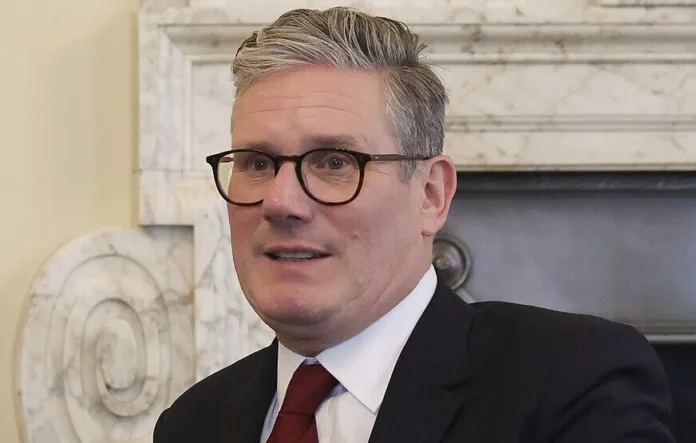The decision comes amidst calls for greater transparency and accountability in political reporting
In a notable decision by the UK’s independent ethics watchdog, the organization has chosen not to investigate Labour leader Keir Starmer over allegations of failing to declare free clothing items. The choice has stirred debate about the enforcement of transparency rules and the broader implications for political ethics.
The controversy first surfaced when it was reported that Starmer, who has been under public and media scrutiny for his adherence to transparency rules, had not reported receiving gifts of free clothing. According to parliamentary regulations, MPs and party leaders must disclose any gifts or benefits received in their official roles to maintain integrity and public trust.
Embed from Getty ImagesDespite the gravity of these allegations, the ethics body concluded that there was insufficient grounds to warrant a formal investigation into Starmer’s actions. The watchdog’s decision is part of a broader trend where the criteria for initiating inquiries into political figures are increasingly stringent. Critics argue that this high threshold undermines efforts to hold politicians accountable for their adherence to ethical standards.
The decision was met with mixed reactions. Supporters of Starmer argued that the dismissal of the investigation reinforces confidence in the fairness and impartiality of the oversight process. They contend that the matter does not merit further scrutiny given the context and the lack of significant evidence of wrongdoing.
On the other hand, critics view the watchdog’s choice as troubling. They believe it reflects a systemic issue in the enforcement of transparency and accountability in politics. These critics assert that the lack of a thorough investigation sends a concerning message about the commitment to upholding high ethical standards among public figures. They call for a reassessment of the processes and criteria used by the ethics body to ensure that similar issues are addressed with greater rigor in the future.
The decision comes at a time when political ethics are under intense scrutiny, with calls for clearer and more consistent guidelines. The situation highlights ongoing debates about the effectiveness of current oversight mechanisms and their role in ensuring that leaders remain accountable to the public.
THE TELEGRAPH
At London Fashion Week, Lady Starmer was seen in a custom-made outfit by designer Edeline Lee, amid controversy over her receiving free clothes. This appearance comes in the wake of allegations that Sir Keir Starmer failed to declare donations from Labour peer Lord Alli, who provided Lady Starmer with designer clothing and a personal shopper.
The controversy intensified after it was revealed that Lord Alli, a major donor and central figure in a recent cronyism row, also had access to a Downing Street security pass. No 10 stated that Lady Starmer’s outfit was a loan and confirmed that declarations would be made as necessary.
Sir Keir Starmer emphasized the importance of adhering to transparency and parliamentary rules, noting that his team has proactively sought advice to ensure proper declarations. Lord Alli’s contributions to Starmer include work clothes, glasses, and substantial funds for accommodation during the election campaign.
THE GUARDIAN
Foreign Secretary David Lammy has defended Keir Starmer in the ongoing controversy regarding donations from Labour peer Waheed Alli, which funded clothing and a personal shopper for Lady Starmer. Lammy suggested that it is common practice for political donors to cover such expenses to help political figures and their spouses present themselves well.
In a BBC interview, Lammy compared the situation to the generous allowances given to US presidents and their spouses, although he acknowledged that there is no direct clothing budget for them. He emphasized that Starmer’s team sought advice and made late declarations in compliance with parliamentary rules. Lammy argued that the issue was about transparency and not misconduct.
The Tories have called for a full investigation into the matter, questioning the connection between Starmer and Lord Alli. Despite this, Lammy insisted that Starmer’s actions were transparent and aligned with standard practices for political figures.
FINANCIAL TIMES
The parliamentary watchdog has rejected calls for an investigation into Keir Starmer’s delayed declaration of free clothing received from Labour donor Waheed Alli. The watchdog determined that Starmer’s late registration of these donations, which covered a personal shopper and designer outfits for his wife, Victoria Starmer, did not warrant further scrutiny.
The controversy centres on whether Starmer adhered to transparency rules after it was revealed that Lord Alli, a significant Labour donor, funded these expenses. While the delay in declaration has attracted criticism, the watchdog’s decision suggests no breach of regulations occurred. Starmer and his team have maintained that they followed proper procedures once the oversight was identified.
